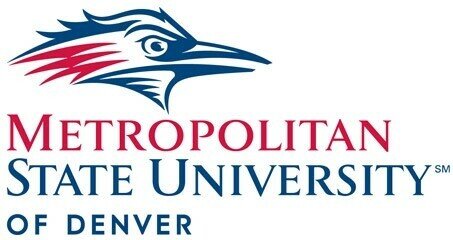Professional Programmes
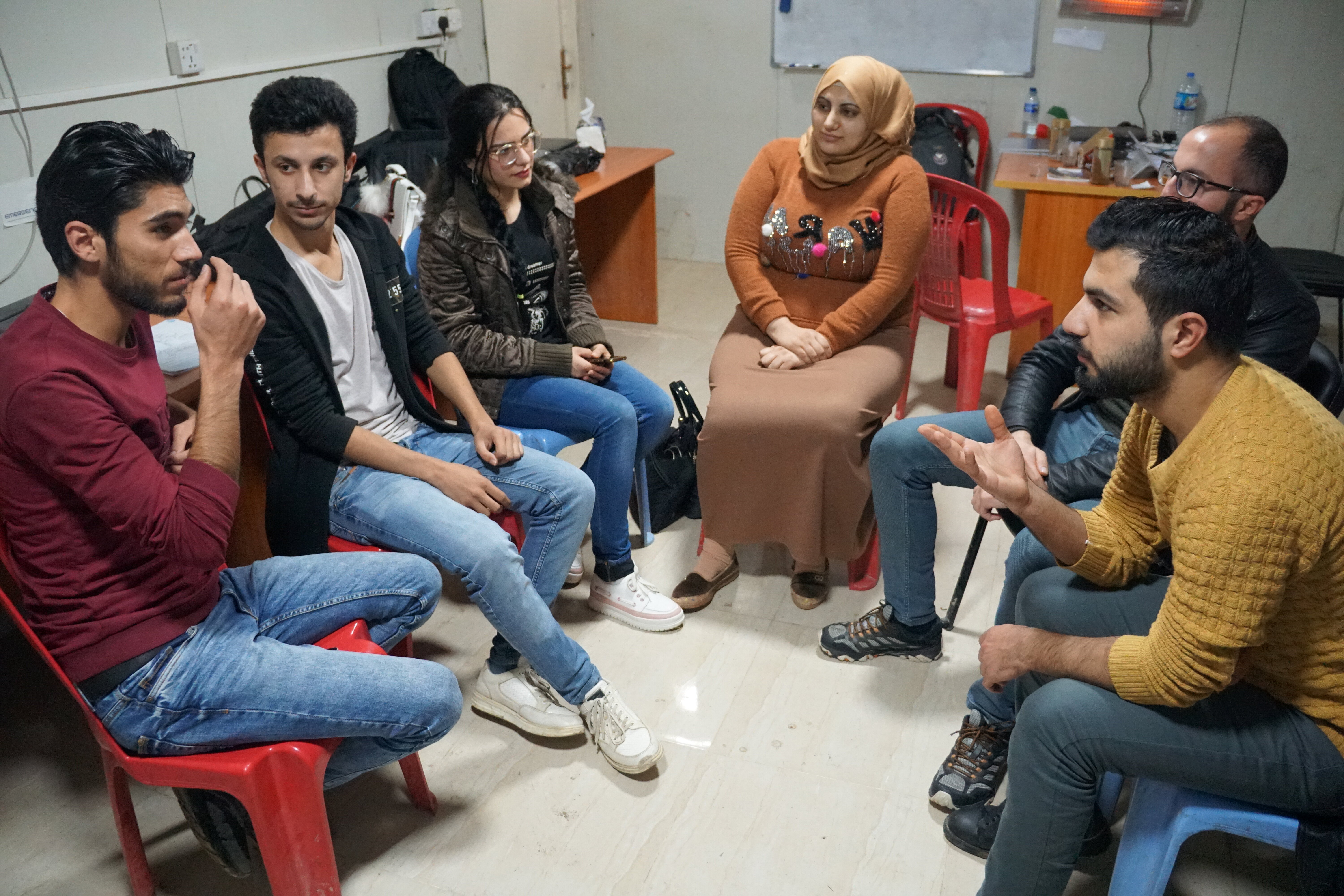
JWL professional certificate programmes are typically six-month programmes designed to equip participants with skills to fill needs in their local context. These programmes are certified by Jesuit and other mission-aligned higher education institutions.
Business Administration
In an increasingly connected world where the importance of the internet continues to grow and influence business, the Business Administration programme (certified by St Joseph’s University, Bangalore, India) prepares participants to engage in this dynamic environment.
Course outcomes & delivery
After having completed the programme you will:
- Understand the concepts of e-commerce and know how to create an online store using popular e-commerce platforms.
- Gain a deep understanding of financial accounting principles, including the accounting cycle, the balance sheet, the income statement, and the cash flow statement.
- Understand the role of accounting in decision-making and to apply accounting techniques to evaluate business performance.
- Develop an entrepreneurial mindset and understanding of the traits and characteristics of social entrepreneurs.
- Understand the concept of social entrepreneurship and its potential for creating social change and impact.
This 8-month programme is divided into five 8-week courses:
- E-Commerce
- Accounting Level 1
- Accounting Level 2
- Entrepreneurship
- Social Entrepreneurship

Timeframe
Educational Innovation and Leadership
Certified by the Catholic University of Eichstätt-Ingolstadt, the Educational Innovation and Leadership professional certificate is a specialised six-month programme designed for educators. It is suited for those who have either completed the Learning Facilitator certificate programme or hold a university degree in teaching. This programme, equivalent to 20 ECTS, is tailored to enhance the skills and knowledge necessary to effectively address the challenges faced by marginalised groups within educational systems. It aims to promote inclusivity and equity in education through a comprehensive curriculum.
Programme outcomes
- Accurately identify and evaluate various critical situations in educational settings.
- Develop and present effective response strategies, incorporating cultural insights and case study analyses to bolster classroom management skills.
- Acquire a comprehensive understanding of lesson phases, including planning, execution, and assessment.
- Create detailed lesson plans that incorporate innovative teaching methods, showcasing their ability to engage students effectively.
- Explore and experiment with a range of digital tools to enhance student engagement and facilitate innovative learning experiences.
- Design and develop interactive digital activities and learning materials.
- Critically examine various cultural rituals and their significance in education.
- Design and implement educational rituals, demonstrating how these can enhance communication, facilitate smooth transitions, and improve the learning experience.
- Develop an in-depth understanding of the interplay between the education system and broader societal contexts.
- Engage in critical analysis of contemporary educational issues, proposing viable solutions and learning pedagogical approaches to promote problem-posing, dialogic education.
Programme delivery
The programme is comprised of four 2-months courses, each focusing on a distinct yet integral aspect of education:
- Classroom Management in Difficult Situations: This course underscores the significance of proactive classroom management strategies, prioritising preventative measures over reactive interventions to create a positive learning environment.
- Technology-based Learning: This course focuses on instructional design, emphasizing the effective integration of digital tools to enrich and modernize educational experiences.
- Relevance and Use of Rituals in Education: The third course explores the impactful role of rituals in enhancing communication, fostering meaning-making, and shaping identity within educational settings.
- Future Educational Contexts: The concluding course offers an in-depth analysis of the various educational, social, political, and economic factors that contribute to the systemic marginalisation of certain groups in education, preparing educators to address and mitigate these challenges.

Timeframe
Reimagining Democratic Foundations for Peace
Certified by the Catholic University of Eichstätt-Ingolstadt, the Reimagining Democratic Foundations for Peace professional certificate is a specialised six-month programme that serves as the next building block on the path to shaping political leaders. It is suited for those who either have completed the 'Peace Leader' certificate programme, possess a university degree in relevant fields, or have at least one year of university study.
This program, equivalent to 20 ECTS, is tailored to encourage students to explore and practice how democratic ideals and structures can lay the foundation for a world of peace and justice for all.
Programme outcomes
- Identify and examine the paradoxes and challenges within the discourse on human rights.
- Clearly express the roles that various cultures and religions play in promoting peace and international development.
- Show proficiency in negotiation skills within diverse environments and contribute to peaceful cooperation.
- Critically assess cultural and religious differences and commonalities that influence the reimagination of democratic foundations for peace.
- Explore the complexities of governance and political economy.
- Identify necessary resources to deepen understanding of political and economic decisions and policies.
- Apply tools effectively to support the creation of peaceful, democratic societies.
- Offer guidance and strategic planning to enhance and promote civic engagement.
Programme delivery
The programme is comprised of four 2-months courses that provide unique insights and tools, contributing to a comprehensive understanding of how democratic principles, human rights, cultural and religious diversity, governance, and civic engagement are intricately connected and essential for achieving and sustaining peace:
- Foundations of Human Rights: This introductory course explores the philosophical and normative foundations of human rights, emphasizing principles of human dignity, freedom, equality, and solidarity. It moves beyond traditional legal frameworks to inspire a global understanding and commitment to human rights across cultural and geographical boundaries.
- Cultural and Religious Diversity: This course examines the significant influence of culture and religion on peace and international development. It highlights the importance of understanding and respecting diverse cultural and religious contexts to foster sustainable peace and development. Students will gain the skills needed to navigate and impact peace initiatives worldwide.
- Democracy and Civic Engagement: Central to this course are the principles of democratic governance and the importance of civic engagement in sustaining democracy and peace. It explores how active citizen participation strengthens democratic institutions and helps societies address conflicts and challenges effectively.
- Governance and Political Economy of Development: This course investigates the role of governance and political economy in development and peace-building. It focuses on how political decisions and economic policies can promote or obstruct sustainable development and peace. Students will learn to analyze and influence governance structures to support democratic and peaceful societies.

Timeframe
Creative Writing and Design
The Creative Writing and Design professional programme, awarded by St Joseph’s University Bangalore (India), equips learners with specific technical skills that will immediately increase their employability, notably their chances to work online or develop their own business.
Course outcomes and delivery
This 8-month programme is divided into five 8-week courses:
- Creative Writing introduces the participants to creative writing, to enable them to express their thoughts and plans creatively with text.
- Graphic Design Level 1 and Level 2 provide an overview of the graphic design field. They introduce the participants to expressing their ideas and messages graphically with attractive visuals and appealing designs.
- Through Web Design, the participants will move one step further and learn how to create their own websites, blogs and other engaging content with a corporate style, combining written and graphical creations.
- Through Dynamic and Interactive Website, students learn methods of designing dynamic website, delve into the significant of open sources, grasp the pivotal role of data in creating interactive webpages, and gain skills to craft effective and engaging online experiences.

Timeframe
Creighton English Teacher Training
The Creighton GEL Teacher Training certificate course introduces students to methodologies for teaching English as an International Language (EIL) to speakers of other languages. Through course readings, discussions, lectures and reflection, students examine the beliefs and principles of a Jesuit education. They learn about different English teaching theories and methods, curriculum development, how to teach the different language areas (speaking, listening, reading, writing, grammar and vocabulary) effectively, classroom management, use of technology and how to create a student-centred classroom. The primary purpose of the course is to prepare new TESOL (Teaching English to Speakers of Other Languages) teachers and provide professional development for experienced TESOL teachers in the international English classroom.
Course outcomes and delivery
- Discuss the spread and impact of English and the forces (political, social, economic) that contribute to the continued globalisation of English today.
- Identify ideology, culture, and theory in curricular products.
- Match English language instruction to student needs.
- Understand different English teaching theories and methods, curriculum development and classroom management.
- Understand how to effectively teach the different language areas (speaking, listening, reading writing, grammar and vocabulary).
- Use relevant existing technology to facilitate learning.
- Design instruction according to research on effective TESOL pedagogy.
- Students learn together globally in the virtual classroom and in smaller online discussion groups. Course facilitators all possess at least a Masters degree in teaching English, with several years’ experience teaching English to non-native speakers at university level both in the United States and other countries around the world.
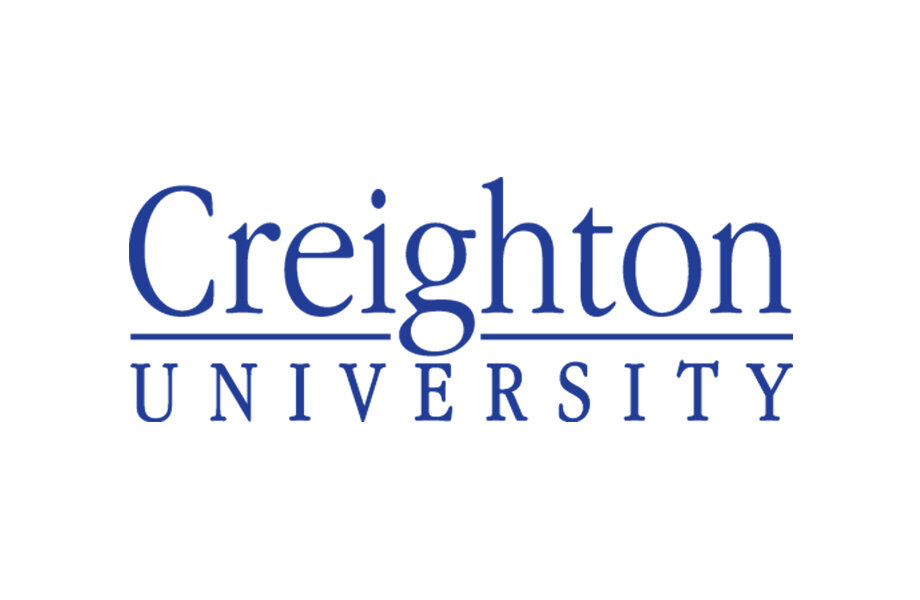
Timeframe
Ecotourism
The Ecotourism professional certificate programme, awarded by the IQS Ramon Lull University (Spain), addresses the needs of communities all over the world to promote responsible tourism that allows the generation of income, while preserving the community's fragile resources.
Course outcomes
The programme provides both understanding and skills in managing ecotourism resources. It introduces the concepts and principles of tourism and ecotourism and the necessary knowledge and practices to design and promote sustainable tourism-related products and services.
The participants have the opportunity to practice throughout the programme with well-targeted case studies and onsite activities.
Course delivery
The programme is divided into 3 courses, spread across 24 weeks:
- Course 1: Fundamentals of Tourism and Ecotourism: Demand
- Course 2: The Supply and the Global Sustainable Tourism: Co-Creation
- Course 3: Design Responsible Tourism Experiences
Students much complete all three courses to receive the Professional Certificate. Each course is composed of 8 Units and each unit has a study load of around 25 hours per week. including self-study, completing tasks and two weekly in-class meetings with a local facilitator.
The programme is designed as a blended learning programme which means it involves both online learning and in-class meetings. Students participate both in a group with peers at their local community learning centre, and in a global community of learners as they will be studying in global virtual classrooms with students from other JWL learning centres across the world.
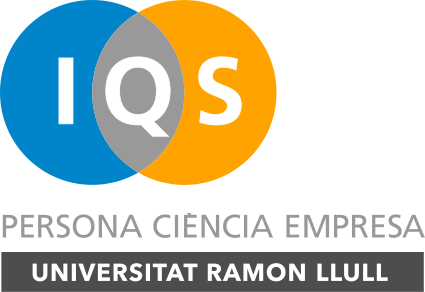
Timeframe
eEducation Tools
The eEducation Tools programme enables participants to improve their teaching by using digital teaching methods which work even in contexts with unstable power supply and internet connection. Over eight weeks, the course participants will get to know different teaching methods and their implementation along with digital tools. The focus is on the parallel, direct implementation of what has been learned in order to make the students' learning more effective and sustainable for their teaching practice. The course therefore introduces tools and focuses on the direct testing of what has been learned in practice.
Course outcomes
After having completed the course you will be able to...
- explain the purpose of the lesson phases and the most important aspects of each phase.
- schedule an engaging lesson according to the lesson phases model.
- apply an engaging method for each lesson phase in your own lessons.
- know various digital tools and their use cases which can be used in your lessons.
- design digital activities according to the needs of your learners.
- create a digital communication concept for your lessons by using several communication tools.
- produce interactive digital learning materials.
- evaluate the ideal mix of methods and tools for your lessons.
Course delivery
The following units will be covered over eight weeks:
- Unit 01: Basic concepts in digital learning environments
- Unit 02: Getting a lesson started, raising interest and checking previous knowledge
- Unit 03: Communication in digital learning environments
- Unit 04: Content presentation & independent working methods
- Unit 05: Deepen the knowledge
- Unit 06: Initiate reflection on the learning process
- Unit 07: Flexible use & analysis of eEducation tools
- Unit 08: Toolbox - eEducation tools

Timeframe
Interreligious Cooperation for Peace
This course aims at guiding students to become conversant with and proficient in dealing with interreligious and intercultural encounters in different contexts of the world and in relation to various professional settings.
Course outcomes
At the beginning of each unit the specific objectives will be outlined, based on the following general objectives and outcomes for the course as a whole. In the overview three main learning objective and outcome categories will be used:
- Knowledge with regard to the content that you are expected to learn;
- Competence in relation to how well this acquired knowledge is applied to observations or in a specific situation; and
- Skills with regard to specific abilities you will have developed during the course.
Course delivery
This course is composed of 3 modules:
PART A: RELIGIOUS STUDIES
PART B: CULTURAL STUDIES
PART C: ETHICS STUDIES
Timeframe
Learning Facilitator
A learning facilitator is an educator who goes beyond traditional teaching, focusing on creating an interactive, student-centred environment. They adapt their teaching to diverse learners, employing various instructional strategies and technologies. These facilitators act as coaches and mentors, enhancing critical thinking and problem-solving skills, and integrating digital tools to enrich learning experiences. They emphasise inclusivity and work collaboratively with the educational community to support holistic student development.
The Learning Facilitator professional certificate programme, accredited by the Catholic University of Eichstätt-Ingolstadt, is a six-month programme designed to equip participants with the skills necessary to facilitate learning in both formal and non-formal educational settings.
Programme outcomes:
- Recognise the importance of education and learning, and reflect upon and evaluate their role as a facilitator in motivating, instructing, coaching, or leading the learning process.
- Explore the potential of educational media and technologies as viable solutions to address the need for increased education and learning opportunities in their community.
- Develop an appreciation for individual differences and cultivate an understanding of diverse cultures and communities, creating an inclusive and learner-friendly environment that upholds high standards.
- Promote active learning among children, youth, and adults, fostering an inclusive approach that does not discriminate based on gender, ethnicity, language, culture, religion, or learning ability.
- Plan instruction so learners meet learning outcomes by drawing upon knowledge of teaching and learning, as well as knowledge of your students and the community context.
- Use multiple methods of assessment to engage the students you will teach, in their own growth to measure and monitor learning, and knowledge-based decision-making.
- Use a variety of instructional strategies to encourage active and cooperative learning and questioning at each of Bloom’s levels of understanding.
- Develop practical skills in delivering effective educational projects in real-world settings.
- Demonstrate the ability to create inclusive and positive learning environments that meet the diverse needs of learners.
- Identify and overcome challenges that arise during the implementation of educational projects.
- Reflect on personal experiences and adapt facilitating practices accordingly for future success.
Programme delivery
The programme is divided into three 8-unit courses:
- Learning Facilitation: This course enables learners to gain expertise in creating dynamic and effective learning experiences that prioritise engagement, inclusivity, and equity.
- Planning for Learning: Through this course, participants develop a comprehensive understanding of the planning process for creating impactful learning experiences.
- Practical Application of Teaching and Learning: In this course, participants have the opportunity to apply their knowledge and skills in real-world teaching situations. They implement their own educational projects to address a specific issue in a local community.
During the latter half of this course, learners engage in a practicum. This 40-hour experiential learning practicum concludes the work required by the learner. As a competency-based programme, all learners are expected to achieve the learning outcomes.

Timeframe
Peace Leader
The Peace Leader professional certificate course, certified by Hekima University College (Kenya) is an applied, 6-month blended learning introduction to the role and practices of a peace leader. The programme endeavours to integrate selected best practices from peace and leadership studies. As peace leaders in training, students will examine and practise personal and communal skills and values that are foundational for nurturing a culture of peace. The course is designed around three core themes of Self-awareness and Cultural awareness; Conflict resolution and reconciliation; and Servant-leadership. Each theme is presented with theory and applied exercises designed to enhance the student’s awareness, skill, and familiarity with foundational methods and practices for Peace Leader development. The programme culminates with a final project in which students apply Peace Leader principles and practices to address a collective concern within a local community.
Course outcomes
- Assess and identify the cultural context in which conflict exists
- Articulate the values of a Peace Leader
- Demonstrate skills for self-awareness practices in peace leadership
- Evaluate the issues within the conflict for possible resolution
- Determine possible resolutions, and models for change
- Use conflict analysis tools and skills
- Identify resources needed to carry out resolve conflicts
- Provide guidance and strategic planning to mitigate the existence of conflict
- Develop coaching, mediation and conflict resolution skills
Course delivery
The course consists of the following four units:
- Introduction to Peace Leaders in Training
- Self-care and Conflict Coaching as a Peace Leader
- Conflict Resolution and Reconciliation
- Forming an Integrative Peace Leader Disposition
During the latter half of this course, learners engage in a practicum. This 40-hour experiential learning practicum concludes the work required by the learner. As a competency-based programme, all learners are expected to achieve the learning outcomes.
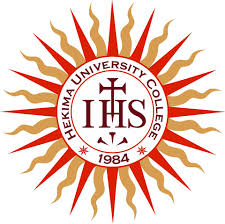
Timeframe
Youth Sports Facilitator
The Youth Sports Facilitator (YSF) professional certificate course, certified by the Catholic University of Eichstaett-Ingolstadt (Germany) or Metropolitan State University of Denver (USA), trains refugee and host community facilitators to create, manage and sustain a youth sports programme in marginalised communities (with an emphasis on forcibly displaced populations). It introduces participants to the fundamentals of planning, implementing and evaluating a youth sports programme focusing on the development of leadership, collaboration, fairness, tolerance, and responsibility for youth between the ages of 14-24 years in a supportive, fun and healthy environment. Facilitators will engage youth by bolstering their physical, emotional and psychological well-being, building ethical mindsets, teamwork, sportsmanship, and moral character.
Participants will learn how to build a sense of safety and security with a focus on protection, inclusiveness of gender, conflict management, psycho-social first aid, understanding referral pathways, and building cross-cultural relationships among youth.
The programme is available in English and Arabic.
Course outcomes
- Demonstrate an understanding of youth development models, theories, methodologies and approaches for working with youth.
- Explore the strategies of psychosocial first aid for youth to provide a safe, supportive and healthy environment.
- Explain how sports can be used as a means for protection and development of youth
- Examine how sports can be a vehicle to engage and develop character, self-identity, resilience, leadership, empowerment and cross-cultural relationships among youth
- Develop a strategy to create, manage and sustain a youth sports programme
- Develop and execute a project management plan
- Develop skills to create a cohesive working team
- Examination of personal values and experiences and as it relates to the creation of a youth sports programme
- Describe an inclusive environment with a focus on gender, disability and LGBTQ
- Foster community engagement through the development of individual and team youth sports
- Explore approaches to conflict management and resolutions
- Examine standards for minimising risk and injury prevention in sports
Course delivery
The course consists of the following 12 sections:
- Introduction to the Concept of Youth
- Project Management
- Understanding Youth Issues
- Getting Started with a Sports Program
- Working with Young People
- Building Psychosocial Support and Protection of Youth
- Sports Approaches and Methods for Development
- Injury Prevention and Minimizing Risk
- Community Support and Communication
- Managing Conflict and Building Peace
- Sustainability and Program Evaluation
- Presentation of Final Projects
During the latter half of this course, learners engage in a practicum. This 80-hour experiential learning practicum concludes the work required by the learner. As a competency-based programme, all learners are expected to achieve the learning outcomes.

Timeframe
